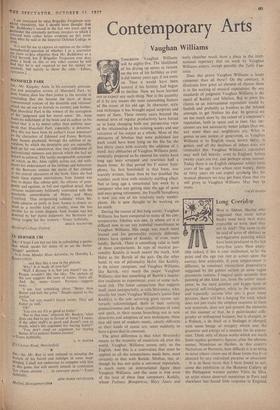MANSFIELD PARK
Sta,—Mr. Kingsley Amis, in his extremely provoca- tive and perceptive review of Mansfield Park, by Jane Austen, does less than justice to the novelist in concluding that she became the slave of those 'conventional notions of the desirable and virtuous' Which she set out so bravely to correct; and further, that Mansfield Park is the witness of the corruption of her 'judgment and her moral sense.' Mr. Amis bases his indictment of the book and its author on his belief that 'it is by moral rather than aesthetic stan- dards that Mansfield Park, especially, is defective.' May this not have been its author's exact intention? In the characters of Edmund and Fanny Bertram, Jane Austen produced, through the subtlest of in- versions, by which the detestable pair are ostensibly held up for our admiration, that very indictment of conventional manners and morals which she had set herself to achieve. The 'easily recognisable occasions' On which, as Mr. Amis rightly points out, she with- draws her endorsement of the feelings and behaviour of the Bertrams contain the secret of her attitude to the central characters of the book. Once she had made these • express reservations, Jane Austen was free to depict that odious pair, the alliance of porn- PesitY and egotism, in full and repellent detail, their virtuous monstrosity brilliantly contrasted with the inevitable unworthiness of Henry and Mary Crawford. 'That invigorating coldness' which Mr. Amis admires so justly in Jane Austen is closely re- lated to a terrible kind of cruelty, none the less terrible for its ironic disguise. Jane Austen was not deserted by her moral judgment: the Bertrams are fitting targets for her censure,—Yours faithfully.
Hert ford College, Oxford
ANGUS MACINTYRE


































 Previous page
Previous page